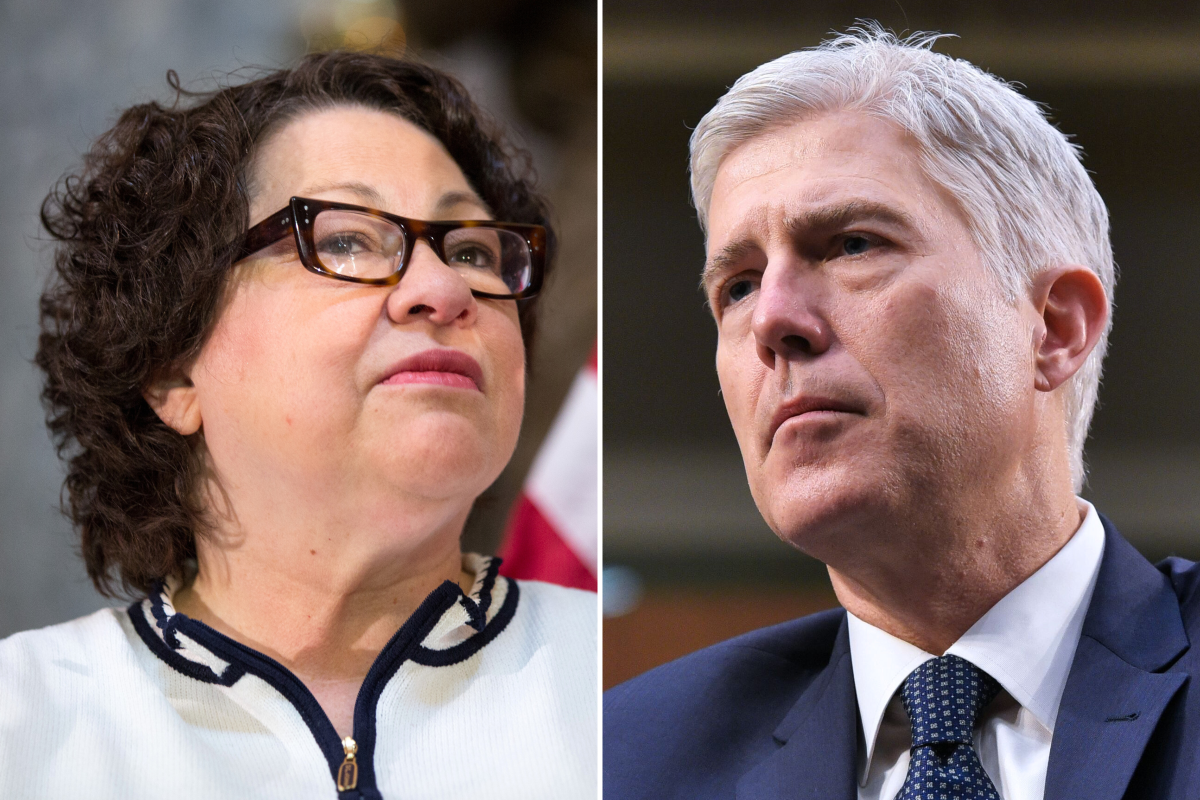Two Supreme Court justices attacked one another in a controversial ruling involving a website designer from Colorado who did not want to design same-sex wedding websites.
On Friday, in 303 Creative LLC v. Elenis, the Court ruled 6-3 in favor of Lorie Smith, who argued she should not have to serve certain customers due to her religious beliefs as a Christian. Because the Colorado Anti-Discrimination Act prohibits businesses from openly discriminating on the basis of sexual orientation, among other factors, Smith argued that the state law violated her free speech and religious rights under the First Amendment.
Justice Neil Gorsuch, who delivered the majority opinion on behalf of the Court's six Republican appointees, used six pages of his opinion to criticize Justice Sonia Sotomayor's dissent, signaling just how divided the Court's ideological gap has grown since it moved to a 6-3 conservative supermajority in 2020. It also comes a day after Justices Clarence Thomas and Ketanji Brown Jackson sparred in another ruling on affirmative action policies in college admissions.
"It is difficult to read the dissent and conclude we are looking at the same case," Gorsuch wrote, scrutinizing the dissent for taking "more than halfway into its opinion" to answer the question before the Court and for getting "so turned around about the facts that it opens fire on its own position."

Sotomayor fired off her own scathing dissent of the majority opinion, slamming the decision for marking "gays and lesbians for second-class status."
"The opinion of the Court is, quite literally, a notice that reads: 'Some services
may be denied to same-sex couples,'" she wrote in her dissent, which was joined by Justices Elena Kagan and Jackson.
"The unattractive lesson of the majority opinion is this: What's mine is mine, and what's yours is yours," Sotomayor concluded. "The lesson of the history of public accommodations laws is altogether different. It is that in a free and democratic society, there can be no social castes."
Critics of the Court's ruling have warned that siding with Smith in 303 Creative LLC v. Elenis could have devastating impacts on those in the LGBTQ+ community and others in marginalized communities, rolling back protections against discrimination and handing businesses the license to do so.
The case has not only been controversial over the national impacts a Supreme Court ruling may bring, but also because new reports have claimed that a key document in the case was falsified.
A day before the Court issued its opinion, The New Republic reported that the individual who allegedly contacted Smith for the website for his wedding with his husband was not gay and in fact, had been married to a woman for the last 15 years.
"I'm married, I have a child—I'm not really sure where that came from? But somebody's using false information in a Supreme Court filing document," he told the publication. He also confirmed to The Guardian on Thursday that he did not send an inquiry to Smith's business.
The Alliance Defending Freedom (ADF), a conservative Christian legal advocacy group, which filed the suit on Smith's behalf, disputed those reports, saying in a statement that their client "had no reason to believe that the request submitted to her website to celebrate a same-sex wedding wasn't a true request."
"This reporter's last-minute attempt to malign Lorie smacks of desperation to delegitimize her civil rights case and our judicial system," an ADF spokesperson told Newsweek about the New Republic report. "It's undisputed that Lorie received this request through her website. She doesn't do background checks on incoming requests to determine if the person submitting is genuine."
On Friday, it celebrated the Court's ruling as a "landmark victory."
"Disagreement isn't discrimination, and the government can't mislabel speech as discrimination to censor it," ADF CEO, President and General Counsel Kristen Waggoner, who argued the case before the Court, said in a press release.
Update 7/3/23, 9:38 a.m. ET: This story was updated with comment from the ADF.
Uncommon Knowledge
Newsweek is committed to challenging conventional wisdom and finding connections in the search for common ground.
Newsweek is committed to challenging conventional wisdom and finding connections in the search for common ground.
About the writer
Katherine Fung is a Newsweek reporter based in New York City. Her focus is reporting on U.S. and world politics. ... Read more
To read how Newsweek uses AI as a newsroom tool, Click here.








